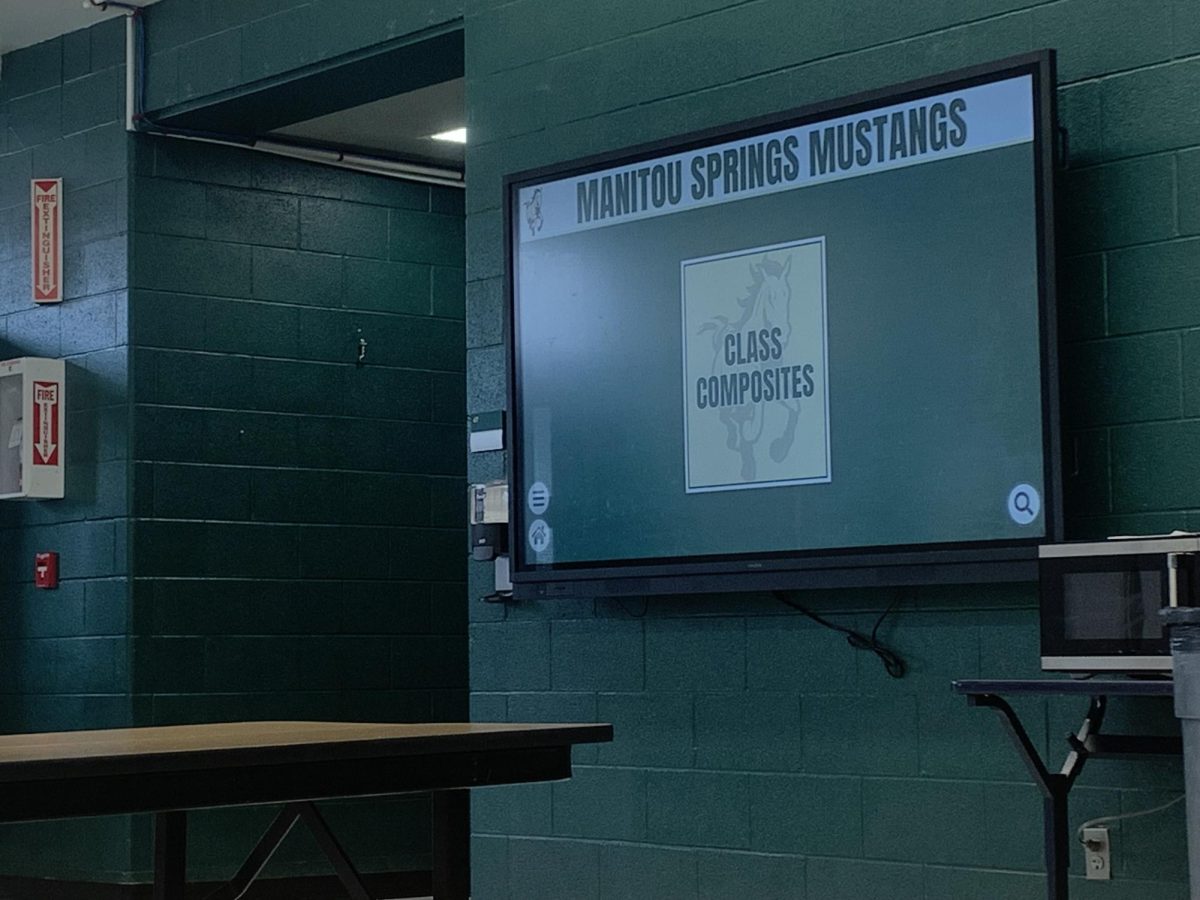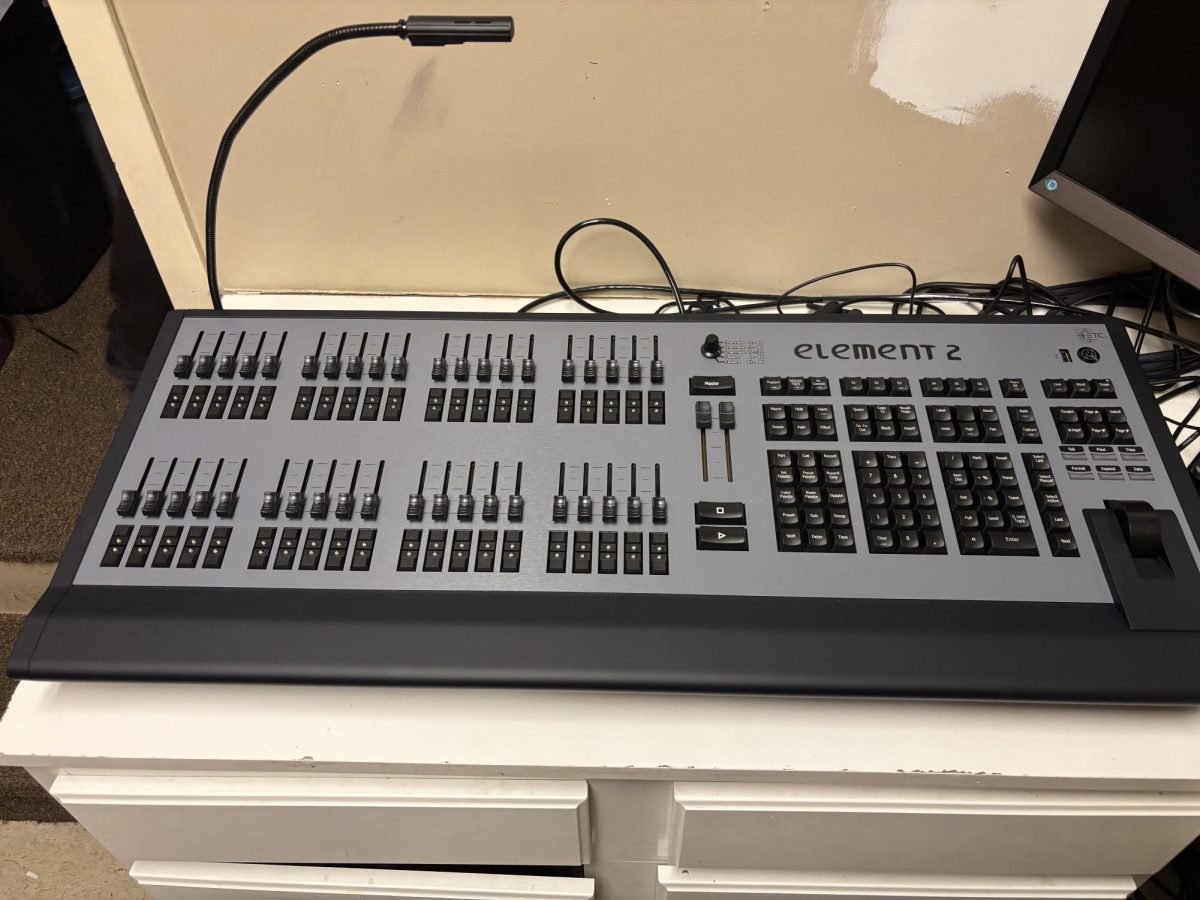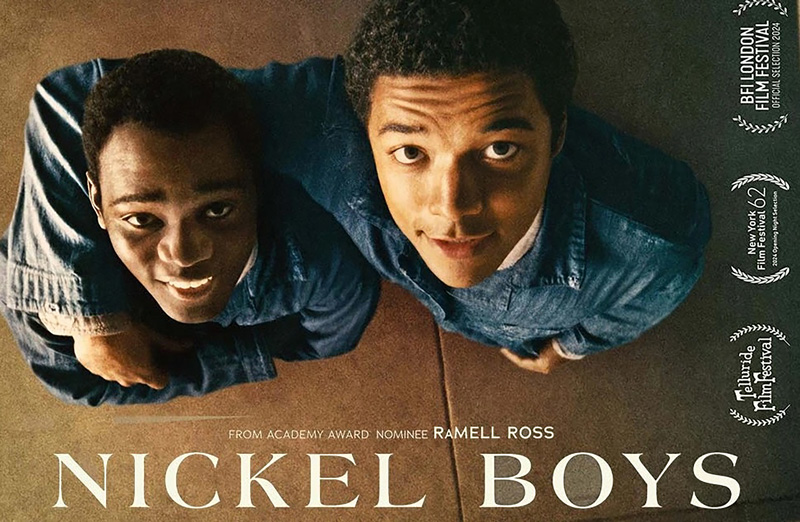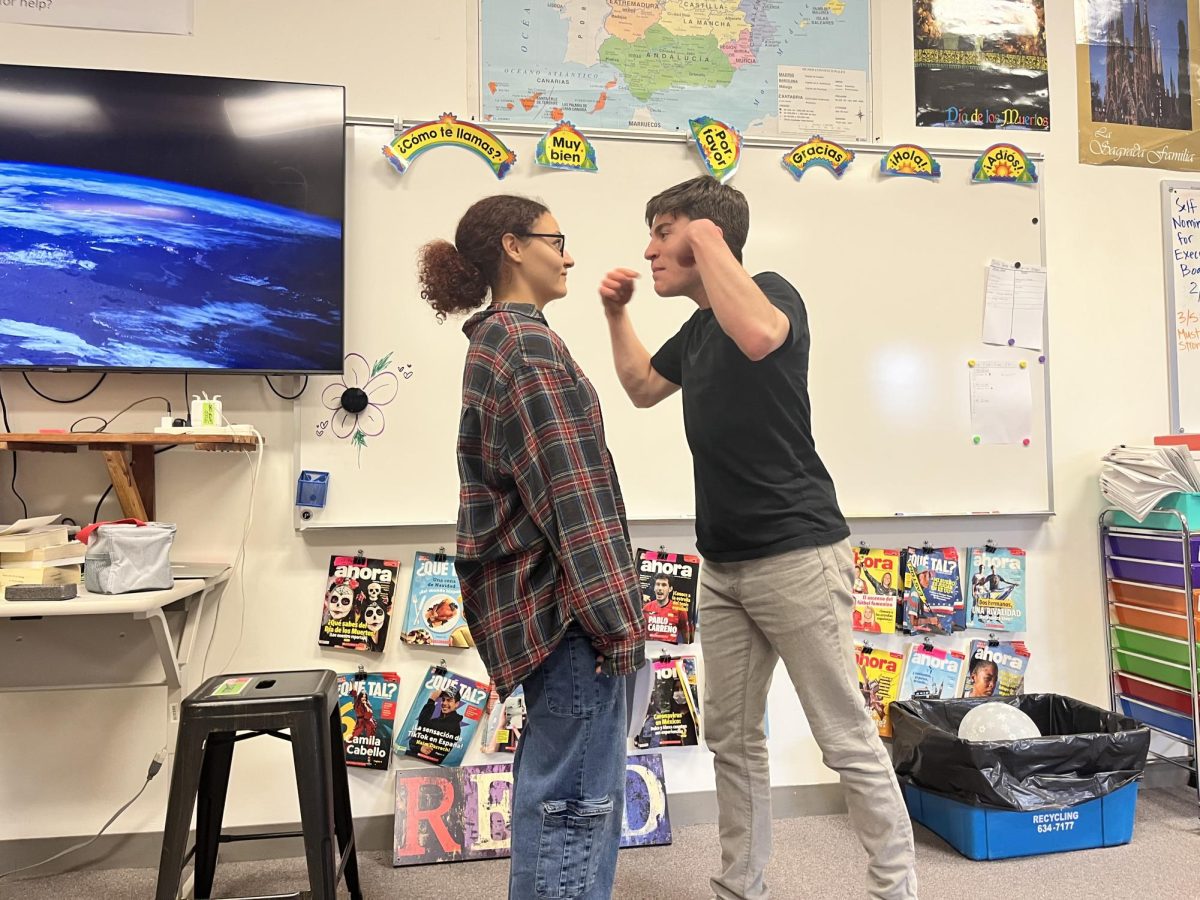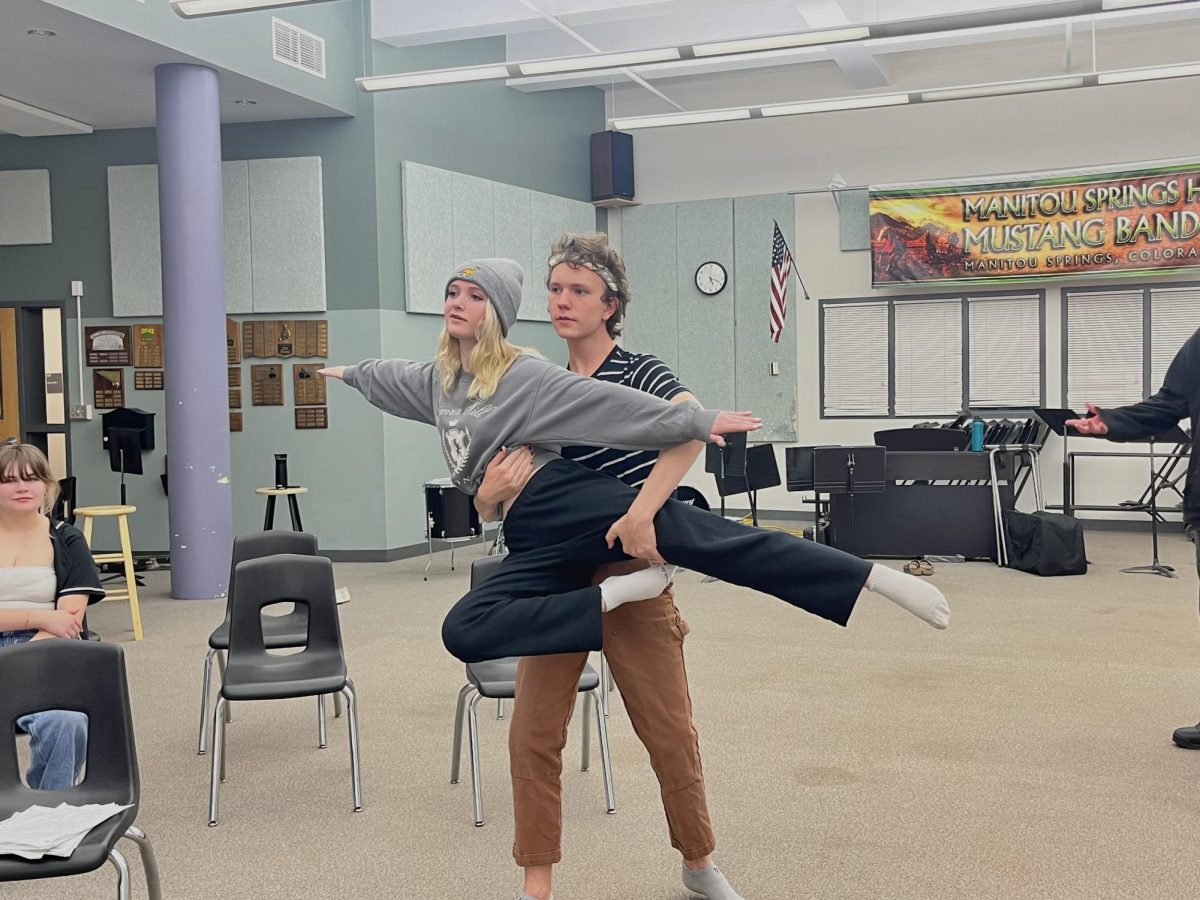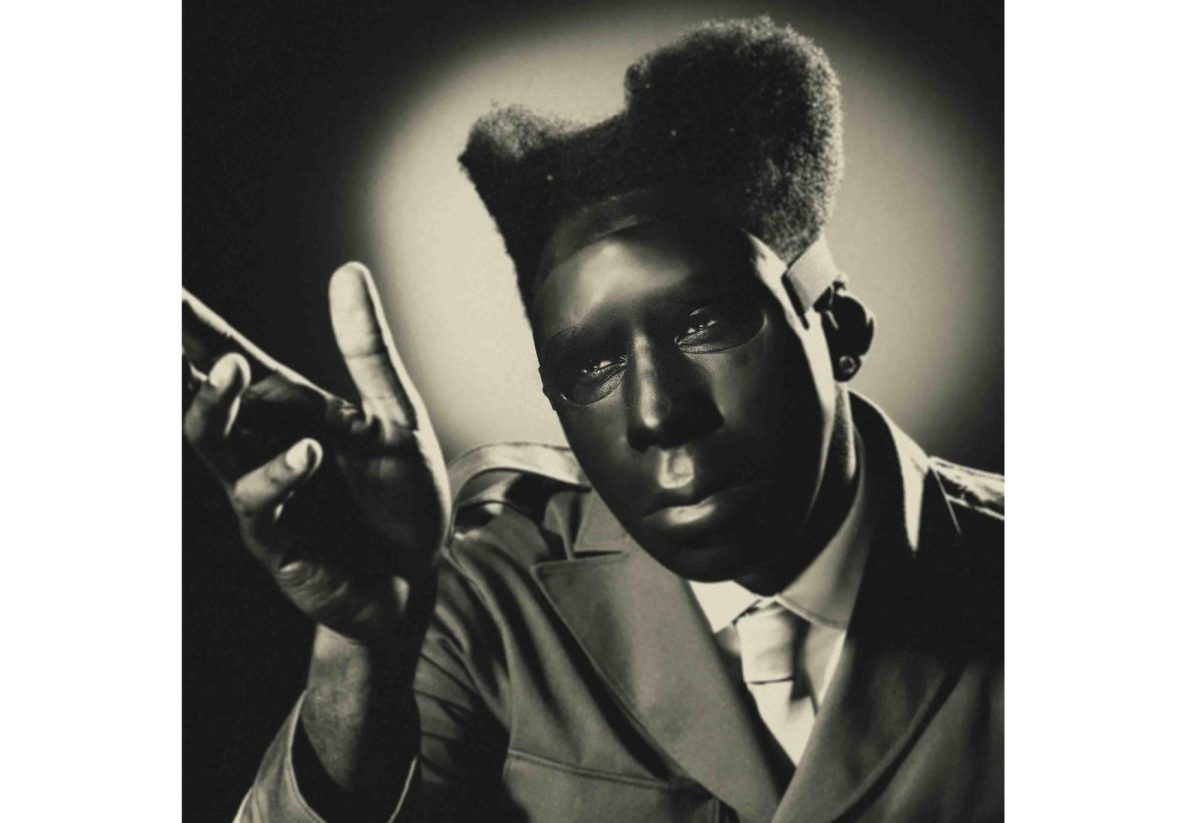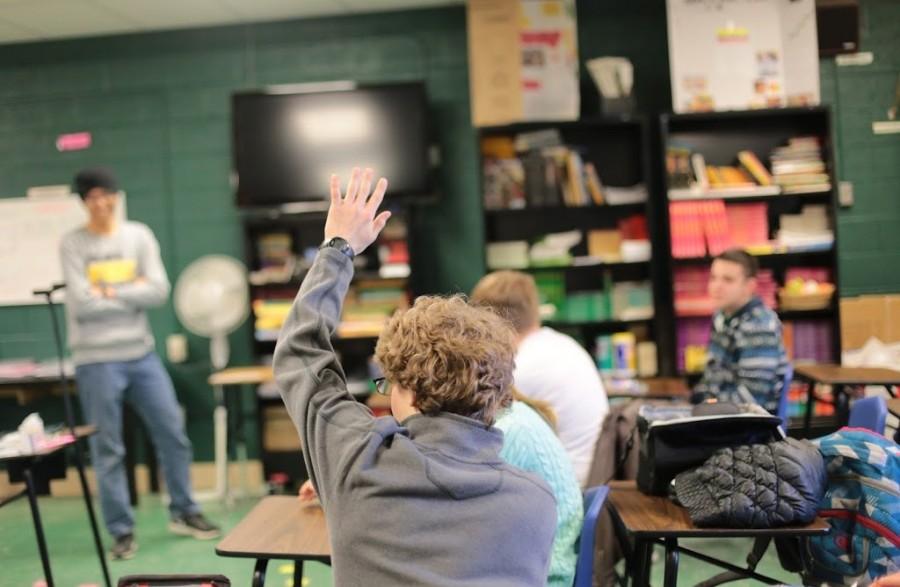Editorial: Watch Your Language!
Noah Sobeck (10) asks about the tonality Mandarin during a Han Club meeting. Sobeck is one of many students that regularly attend the club.
March 7, 2016
With registration not far around the corner, students are starting to sign up for new classes. Some people might be completing their 4-year plans. One part of this plan out is your two required semesters of language. There are the options of Spanish, French and German. They are the most studied languages in the U.S., but far from the most popular languages spoken world-wide. Spanish is a very common language around the world, ranked at the second most spoken language, but French is the 9th and German is the 11th.
There are about 6,500 languages spoken around the world. 2,000 of them have fewer than 1,000 speakers. For example, Mandarin Chinese is the most popular language in the world, with roughly 1,213,000,000 speakers. Jay Huang (11) leads Han Club, which is a Chinese culture club after school. He teaches a bit of language, but mostly focuses on culture.
Another language that is vitally important to us is sign language. It’s been rising in popularity since 2007, and is around the 3rd most widely-used language in the U.S., not including English. It is not a universal language, but each country has their own version of it. Pikes Peak Community College teaches a course for those who want to learn.
We as a society should support our people who can only communicate through sign language. They can’t simply use our language, so it’s our job to learn theirs. A lot of hard of hearing people can’t communicate with others because they don’t sign. Therefore, they are restricted to communication with only other hard of hearing people.
It seems like many schools tend to teach less popular languages, opposed to ones we can use on a regular basis such as sign language. Languages are a beautiful and complex thing. The thought that most people who speak foreign languages either learn English or have a translator allows us to think that we don’t need to learn their language. There are numerous advantages to learning more languages. Our chance of making peace with the Arabs would increase dramatically if our politics could speak fluently with them. We could have regular conversations with people with hearing disabilities.
One of the hard things with teaching more diverse languages is the resources needed to do so. It is difficult to hire a single instructor to teach multiple languages, and it’s even more of a struggle to pay seven different language teachers. The real problem is to find a way to spread the culture of language, while still maintaining the budgets of the school. There are always clubs that students can join, but that will not fulfill the graduation requirements at the school. So how are we supposed communicate with our peers who sign or speak Mandarin, if our schools don’t teach us? It would be a shame if we had to take it upon ourselves because our schools could not teach us.

